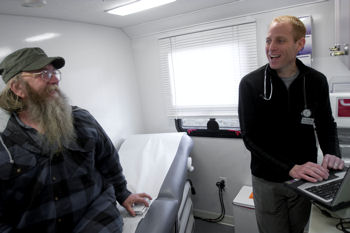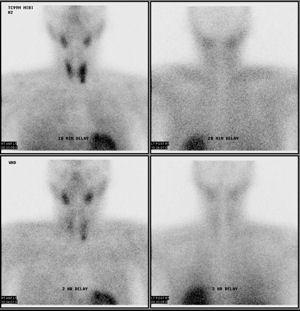ACPNET brings continuing medical education into the clinic
We all appreciate that studying and learning are lifetime essentials for being a good physician.
We all appreciate that studying and learning are lifetime essentials for being a good physician. However, it is not easy to know what you need to know, what you don't know but ought to know or how to stay current in medicine.
In the early 1990s, before the merger of ACP and the American Society of Internal Medicine (ASIM), the ASIM initiated the IMCARE Practice Guidelines Network to facilitate cooperation of internists in practice-based learning, a project matching the learning process to the activities and decisions of practicing internists. When ACP merged with ASIM, the network was renamed QNet, and it began a series of studies of common conditions such as diabetes, asthma, congestive heart failure, anticoagulation and cholesterol screening. Participants voluntarily collected their own performance measures and received confidential feedback about how they compared with others involved in the network.
In 2001, QNet became ACPNET and then quietly recruited more than 800 members to work together on practice improvement. ACPNET physicians have participated in initiatives focusing on diabetes and depression care, and are currently recruiting for new projects involving care for elderly patients, chronic obstructive pulmonary disease, at-risk alcohol use and pain management.
As part of the ACP Diabetes Initiative, ACPNET expanded significantly. Over the last three years, there have been more than 15,000 unique visitors and more than 1.2 million page hits to the ACP diabetes portal as a part of this program. The most popular tools and downloads from the diabetes portal are: the use of a monofilament to evaluate diabetic neuropathy and foot ulcers, the diabetes components from ACP's annual meetings, instructions about proper eating and the patient self-management module. The diabetes portal and ACPNET, in fact, have become very important components of ACP's clinical information resources, alongside PIER, MKSAP, Annals of Internal Medicine and ACP Medicine.
One of the important goals of ACPNet is to bring continuing medical education into the clinic and support the learning process in the patient-centered medical home (PCMH). Coordinated care based on evidence-based guidelines and the continual tracking, aggregation and comparison of clinical data about groups of patients and practices are key features of the PCMH, particularly for the care of patients with chronic diseases. There is wide consensus that improving care through the PCMH model requires easily accessible records and the availability of computer-based health information technology. The ACPNET process provides bottom-up self-improvement, driven by evidence-based guidelines and the norms of practice with the goal of continuous quality improvement.
At a recent meeting of the ACP Board of Regents, Vincenza Snow, FACP, Director of Clinical Programs at the College, presented an excellent summary of the ACPNET project, its funding and its promise for the future. Her presentation was received with great enthusiasm. The only reservation was the relatively small size of the project compared with the large number of internal medicine physicians and practices eligible to participate.
Until now, ACPNET has been something of a small-scale experiment; scaling up to make practice-based learning and improvement widely available now seems natural. Participation in ACPNET fulfills all the principles for maintenance of certification and should be a way to remain a certified internist. Currently, however, individual ACPNET projects are largely supported through philanthropies and the pharmaceutical industry. Finding the resources to scale-up for a larger number of participants and a greater variety of projects is one of our current challenges.
ACPNET welcomes new participants. Go to here for a deeper description of this program, an application to participate and instructions on how to become involved. Or contact ACPNET Director Amir Qaseem, MD, PhD. Those who have participated find ACPNET to be a really valuable part of being a Member, Fellow or Master of ACP.





